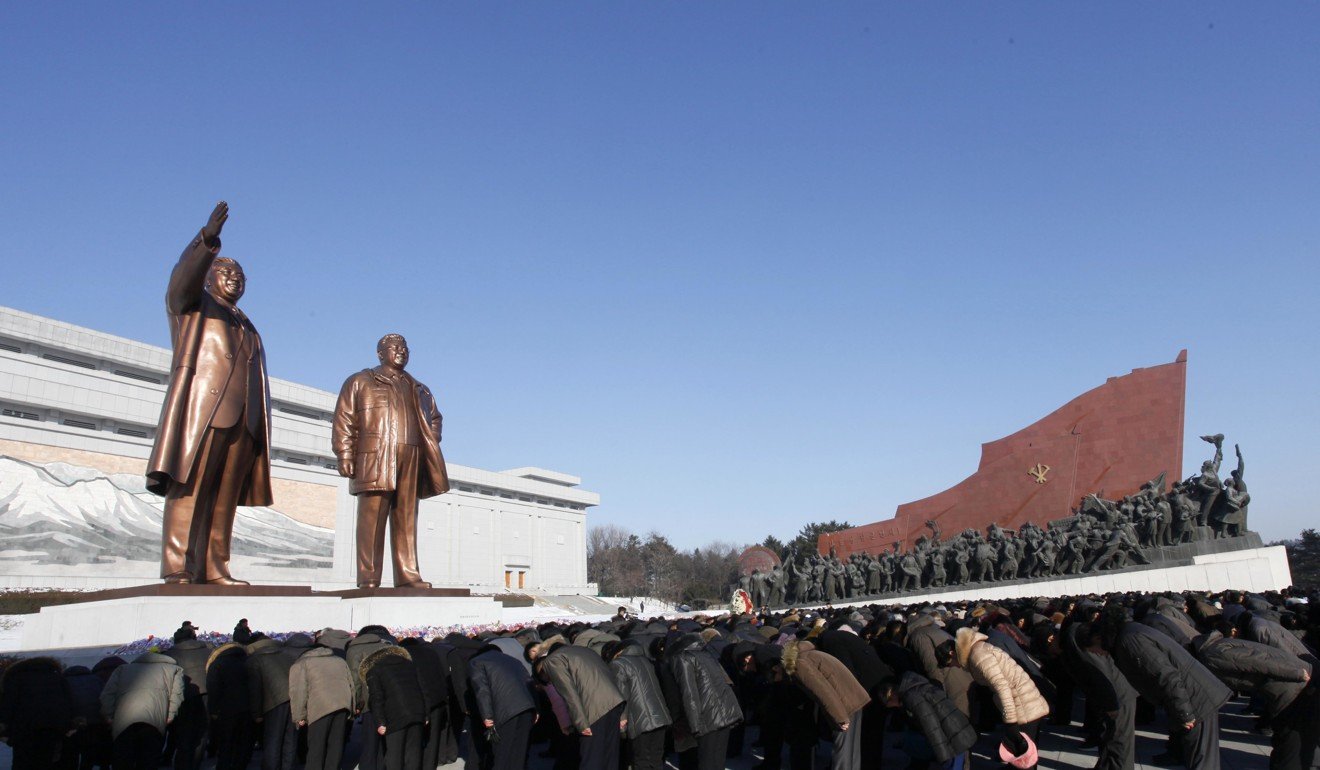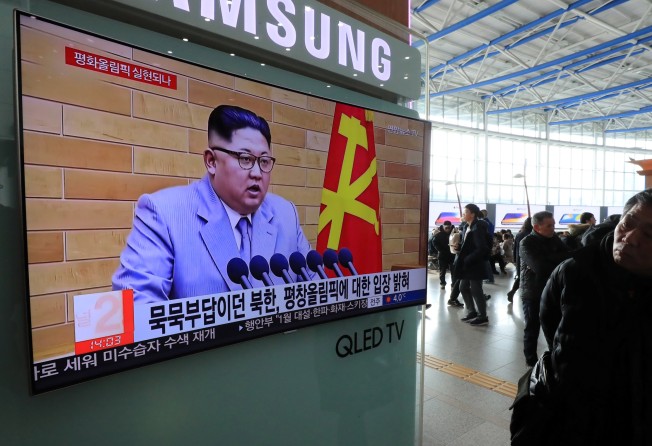
Kim Jong-un’s Olympic olive branch to South Korea reflects his confidence – not a willingness to denuclearise
Son Daekwon says the fact talks are taking place between North and South Korea indicates that Kim Jong-un feels secure, having purged domestic rivals and completed a nuclear deterrent, so don’t count on him deciding to give that deterrent away

In his 2018 New Year speech, North Korean leader Kim Jong-un offered his olive branch to Seoul, saying that the North and South “should work together to ease the acute military tension ... and create a peaceful environment on the Korean peninsula”. And he proposed talks – which today resulted in an agreement on North Korea sending a delegation to the Pyeongchang Olympics next month. Pyongyang’s conciliatory gesture, in combination with other indications, reveals that Kim has fully consolidated power and that, after nearly perfecting nuclear capabilities, he is now seeking to garner public support.
Kim inherited North Korea from his father, Kim Jong-il, in 2011, when he was in his late 20s. The callow leader’s task was to secure his country from “the US hostile policy”, to consolidate his power among many seasoned cadres and to garner public support. What he chose was pursuit of the byungjin policy – parallel development of nuclear weapons and the economy, while ruthlessly purging cadres revealing any intention to challenge him. In doing so, he had to rely on the authority of his father and grandfather. Immediately after taking office, he began a style of rule based on the will and instruction of his grandfather, Kim Il-sung – North Korea’s national founder – and his father. He also amended the party charter and enshrined that “Kimilsungism-Kimjongilism is the only guiding idea of the party”. He has repeated this “Kimilsungism-Kimjongilism” several times in previous New Year speeches.

This year’s speech, however, was slightly different. He did not talk about “Kimilsungism-Kimjongilism”, or mention his predecessors by name; instead, he only used their titles – the “Great Leader” (his grandfather) and the “Great General” (his father). Furthermore, contrary to Pyongyang’s popular tradition, he did not wear a Kim Il-sung and Kim Jong-il badge during the New Year speech for the second year in a row. It seems he has now consolidated his power to the point of not necessarily relying on his predecessors’ authority. Perhaps this stems not only from repeated purges, but also from success in building “a strong and reliable war deterrent” that he thinks can secure North Koreans from the US: nuclear weapons and ICBMs. “The United States can never wage war against me and our nation”, he unequivocally declared during the New Year speech.
Now, in 2018, he will focus on his last task: garnering public support. The main means will be building a “people-friendly image” and improving economic conditions. This was foreshadowed in the New Year speech; unlike previous ones, which always began with “Dear Comrades”, this year’s speech started with “Dear all people in this country and brave service personnel of the [Korean] People’s Army”. Also, contrary to previous speeches full of such terms as juche – the national ideology of self-reliance – “revolution”, “the socialist cause” and “invincible military”, Kim took the unusual step of mentioning “the beautiful dreams of all our people, including the hopes of our children”. The fact that he bowed very deeply and politely at the waist before and after this year’s speech can be interpreted in a similar vein.
Kim also promised to overcome North Korea’s economic backwardness. “The central task facing socialist economic construction this year is to enhance the independence and juche character of the national economy and improve the people’s standard of living,” he said.
Getting to grips with North Korea in 15 graphics
In this regard, his Olympics olive branch to Seoul deserves a cautious look. Aware that the living conditions of the North Korean people are extremely difficult due to “life-threatening sanctions and containment”, Pyongyang may want to engage in direct talks with Seoul as an attempt to seek some more leverage in its policy vis-à-vis the US and ultimately loosen the ongoing US-led sanctions. Kim may suspend further missile launches or nuclear tests, at least during the Olympics. This could be a stepping stone in building inter-Korean trust. Nevertheless, given that his unusual conciliatory gesture is based on nuclear capabilities, the realisation of a nuclear-free Korean peninsula still seems a long way off.
Son Daekwon is a Ph.D candidate at Peking University